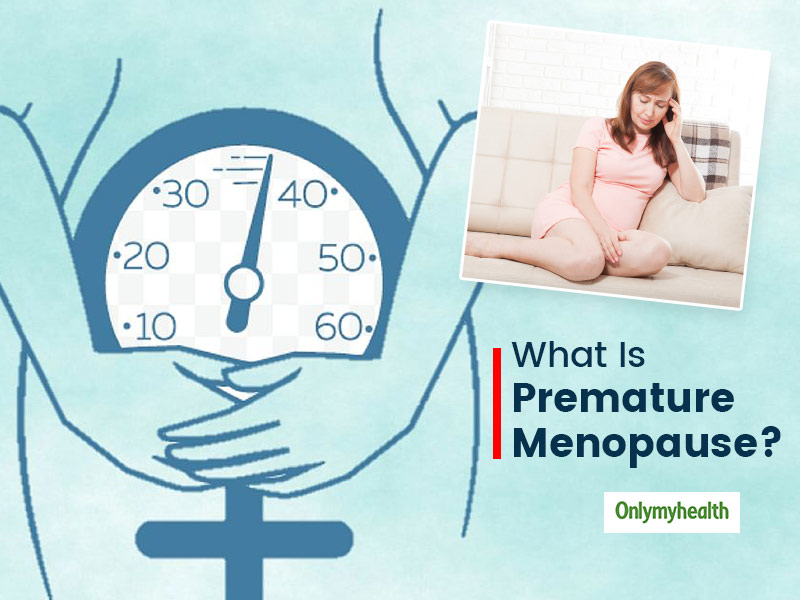
What does premature menopause do to your body? Menopause is a phase in a woman’s life when menstruation (monthly cycles/periods) ends. Natural menopause happens typically when a lady is in her late 40s or early 50s. This part of the ageing process implies that a woman can no longer conceive. There are essentially three stages to natural menopause:
Table of Content:-
- Perimenopause: This is an evolution phase where the ovaries start to produce fewer hormones, causing inconsistent levels of progesterone and estrogen, as well as less testosterone. This stage ends with the setting up of menopause. Menopausal symptoms tend to begin around this time and can often be the worst.
- Menopause: The menstrual cycle stops in this stage. The estrogen levels become extremely low, and the ovaries no longer release eggs. Once a woman has not had menstruation for 12 straight months, it is safe to say that she has gone through menopause. Nonetheless, it is incredibly crucial to ensure that the absence of periods is not due to another reason, such as the use of birth control pills or abnormal thyroid function.
- Postmenopause: This is the phase after a woman has gone through menopause. The symptoms and signs that occur during menopause, such as hot flashes, may disappear but could continue for longer in many cases or a decade.
CAUSES OF PREMATURE MENOPAUSE
A medical condition or treatment can cause premature menopause, or it may have no known cause. Possible factors that could cause early menopause are listed below:
Also read: Women's Health: Menstrual Pain? Get Relief With These Minerals In Your Diet
- Having a surgery that removes the ovaries.
- Having surgery to remove the uterus-hysterectomy. Note: May not be accurate menopause as the ovaries may still be working in young women if conserved.
- A side effect of chemotherapy or radiation.
- Having a family history of early age menopause
- Smoking.
SYMPTOMS OF PREMATURE MENOPAUSE

Women may start having infrequent monthly cycles for a few years before the last menstrual period. If the cycles are irregular, one must speak with the doctor to look into possible causes. Dr Ranjana Sharma (senior consultant, obstetrics and gynaecology, Indraprastha Apollo Hospitals) states that the signs and symptoms of premature menopause include many of the usual menopause symptoms such as:
Also Read: Are You Getting Periods Twice In A Month? Here Are Some Possible Reasons Why
- Hot flashes which is primarily the sudden warmth that spreads over the body.
- Night sweats and cold flashes.
- Vaginal dryness; discomfort during sex.
- Urinary urgency (an urge to urinate more frequently).
- Urinary tract infections (or symptoms without a disease).
- Difficulty sleeping (insomnia).
- Dry skin, dry eyes or dry mouth.
- Breast tenderness.
- Racing heart-palpitation.
- Headaches.
- Joint and muscle aches and pains.
- Changes in libido (sex drive).
- Difficulty concentrating, memory lapses (often temporary).
- Weight gain.
- Hair loss or thinning.

RISKS FACTORS RELATED TO PREMATURE MENOPAUSE
Loss of estrogen at an early age has been associated with increased risks of various medical problems. These risks include:
Also Read: Natural Ways To Relieve Menstrual Cramps
- An earlier death.
- Many neurological diseases like an increased risk of dementia.
- Sexual dysfunction.
- Heart disease.
- Mood disorders.
- Osteoporosis.

MANAGEMENT OF PREMATURE MENOPAUSE EXPLAINED BY DR RANJANA SHARMA
The aim is to prevent the adverse effects of premature menopause. Treatment for early menopause usually involves HRT or a combined hormonal contraceptive to continue until at least the age of natural menopause. This gives some protection from osteoporosis and other conditions that can develop after menopause. In conditions where premature menopause is predictable, some women would like to explore the measures of preserving their fertility before menopause sets in. On the other hand, sporadic ovulation has been observed in premature ovarian insufficiency (POI) cases that may result in an unexpected pregnancy. Hence, women should be aware of the necessity of contraception to avoid an unwanted pregnancy.
Read More Articles in Women's Health
Also watch this video
How we keep this article up to date:
We work with experts and keep a close eye on the latest in health and wellness. Whenever there is a new research or helpful information, we update our articles with accurate and useful advice.
Current Version